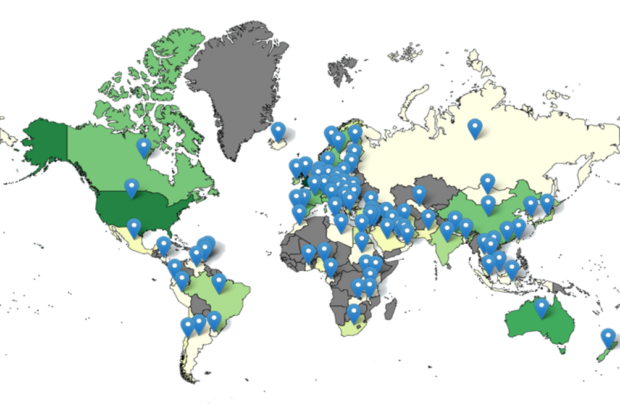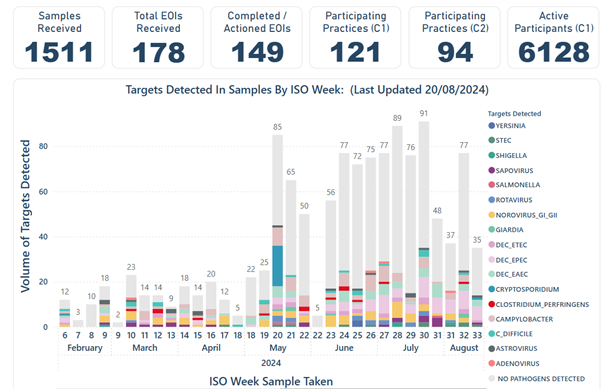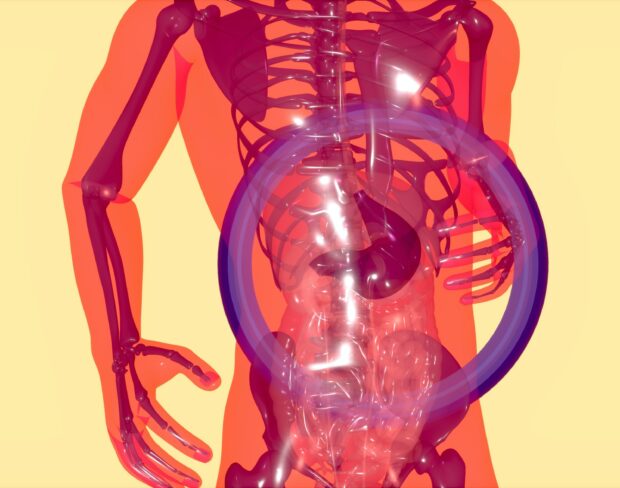Cymraeg What is the global interest in studies into Infectious Intestinal Disease (IID) burden? I aimed to answer this by examining the use of IID1 and IID2 study reports, and related work, and visualise the findings using a dynamic application …
Thanks to the use of patient- and practice-facing technology, this study has succeeded in achieving large scale, rapid population level recruitment into research about diarrhoeal illness and possible food poisoning in the community.
COVID-19 changed many of our eating habits and behaviours. It also provided a unique opportunity for us to study how restrictions influenced the transmission of Infectious Intestinal Disease (IID).
AMR has been identified as one of the most pressing global challenges we face this century. Through projects such as IID3, we are able to learn more about AMR in foodborne pathogens with the aim of supporting work to prevent the spread. Part of our World Antimicrobial Resistance Awareness Week (WAAW) series of blogs.
One of the Food Standards Agency's ongoing commitments to food safety is surveillance. As part of this, we actively monitor the levels of infectious intestinal disease (IID) in the UK. While we regularly review the number of confirmed IID cases, not all cases that occur in the UK population will be recorded by public health …





Recent Comments